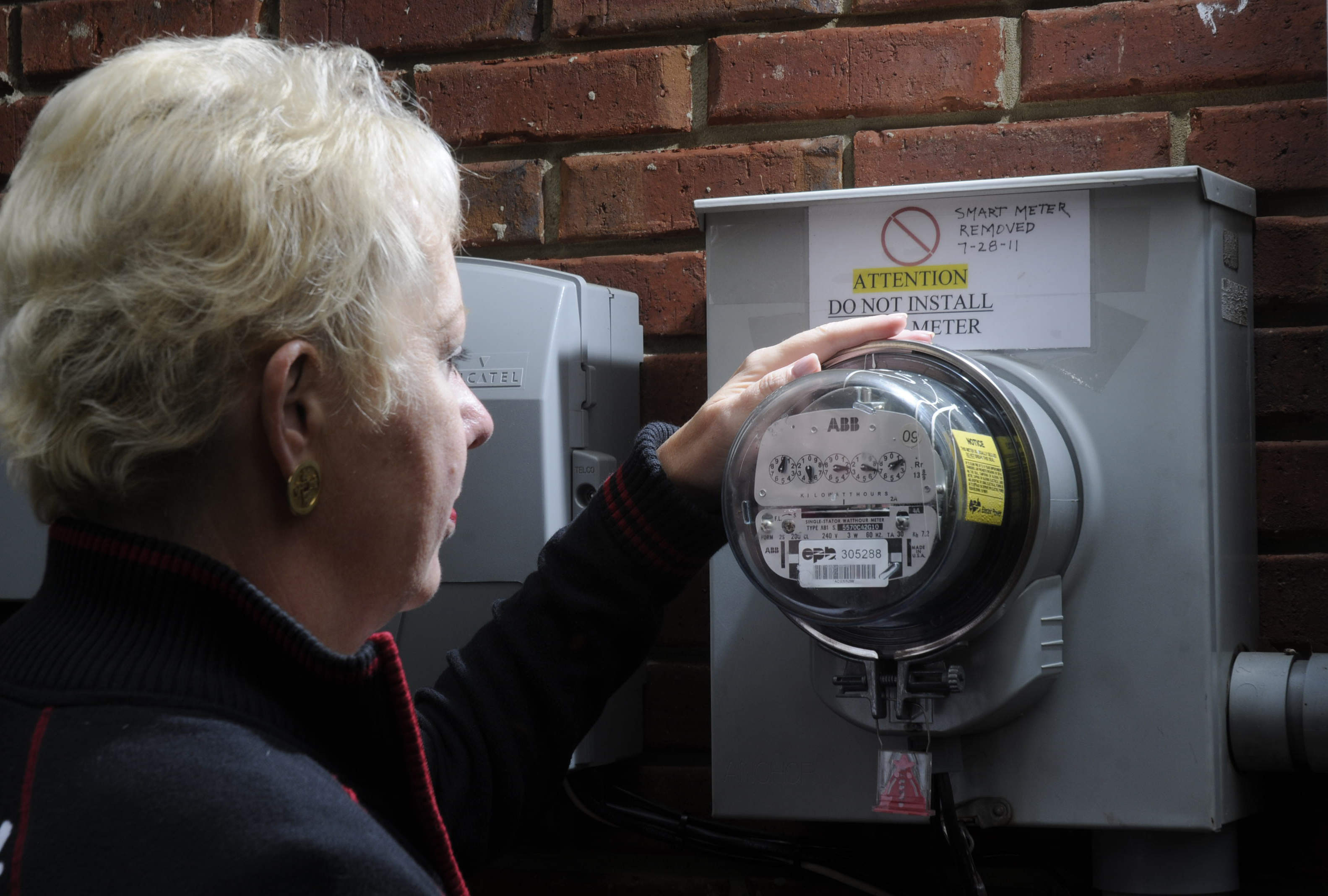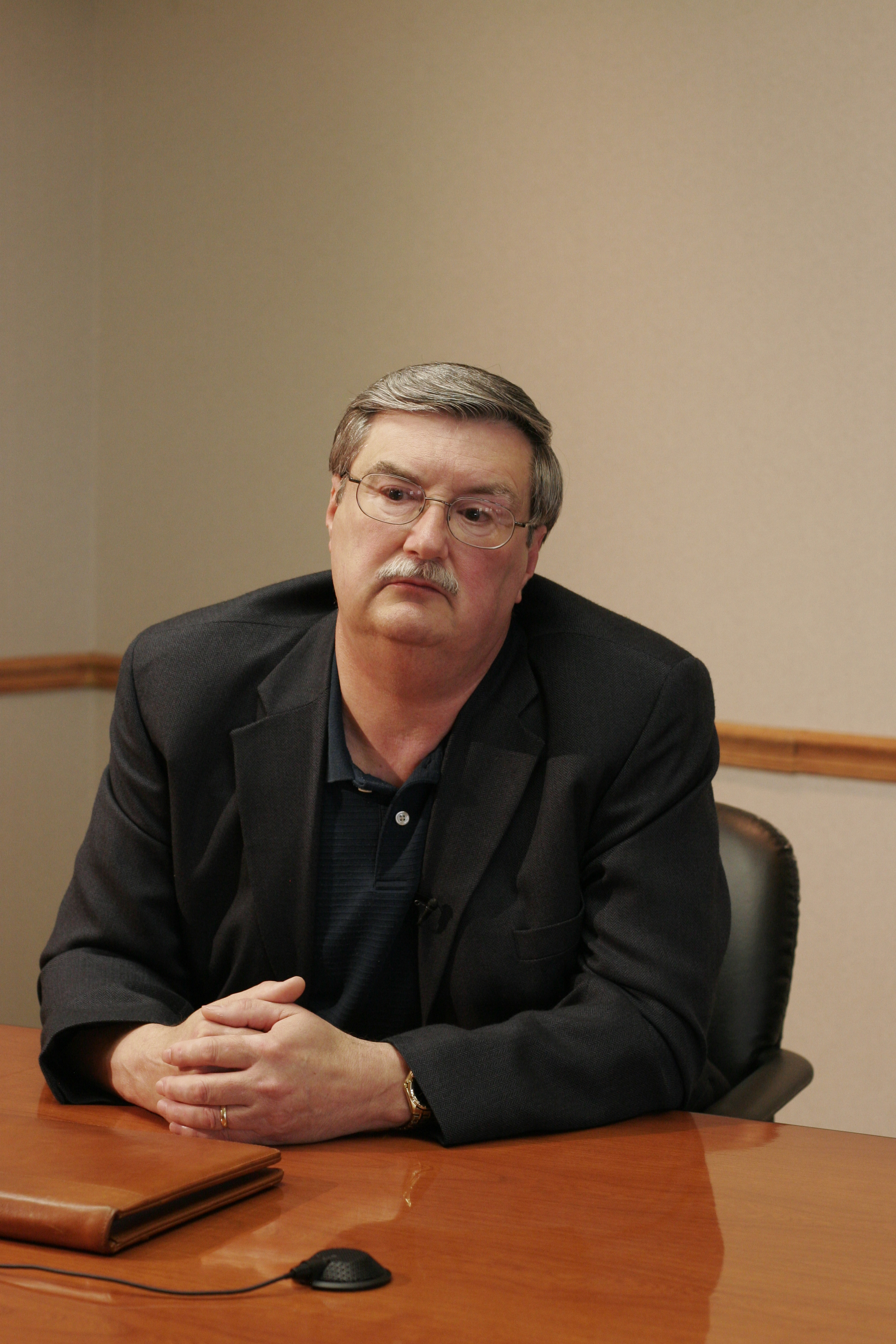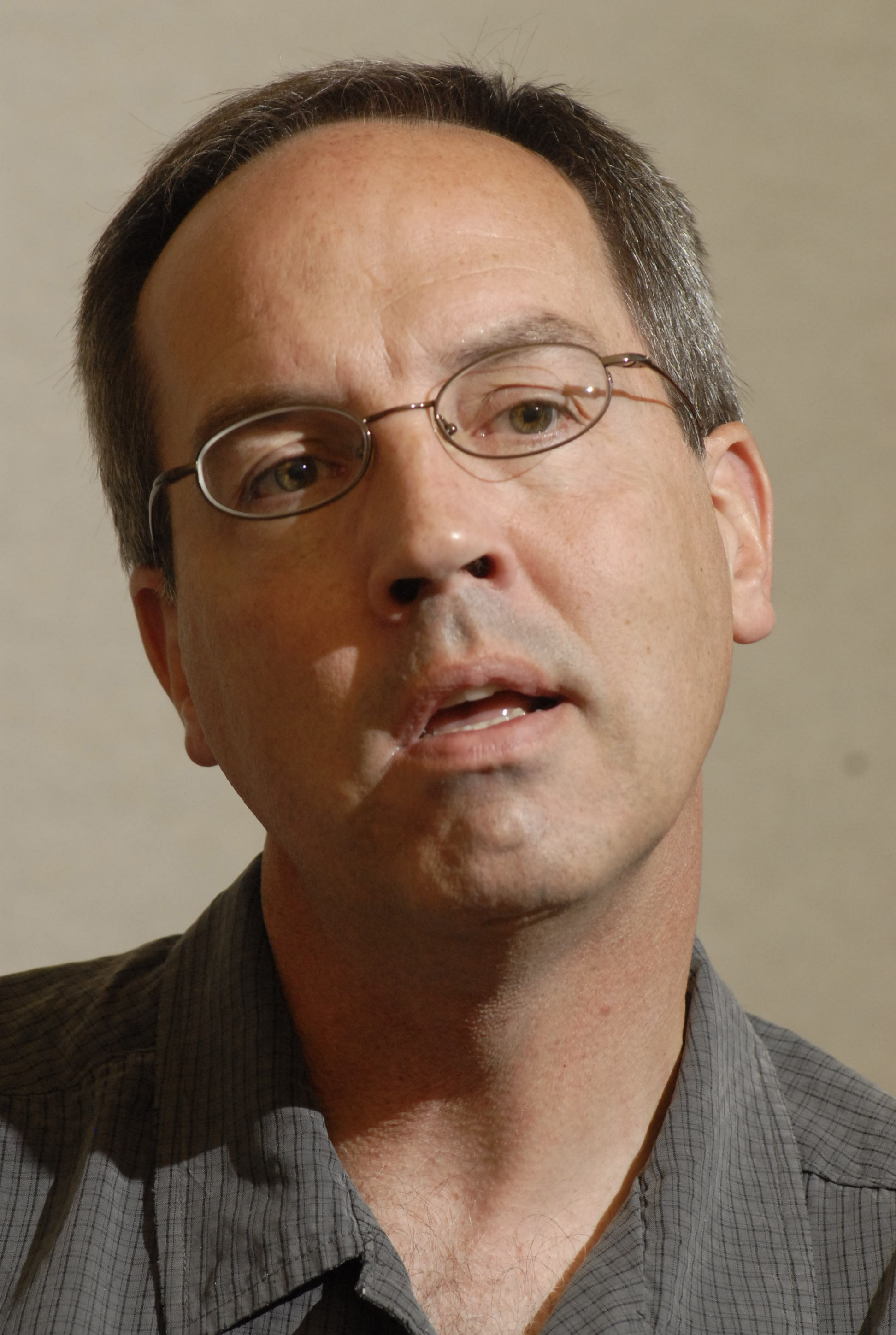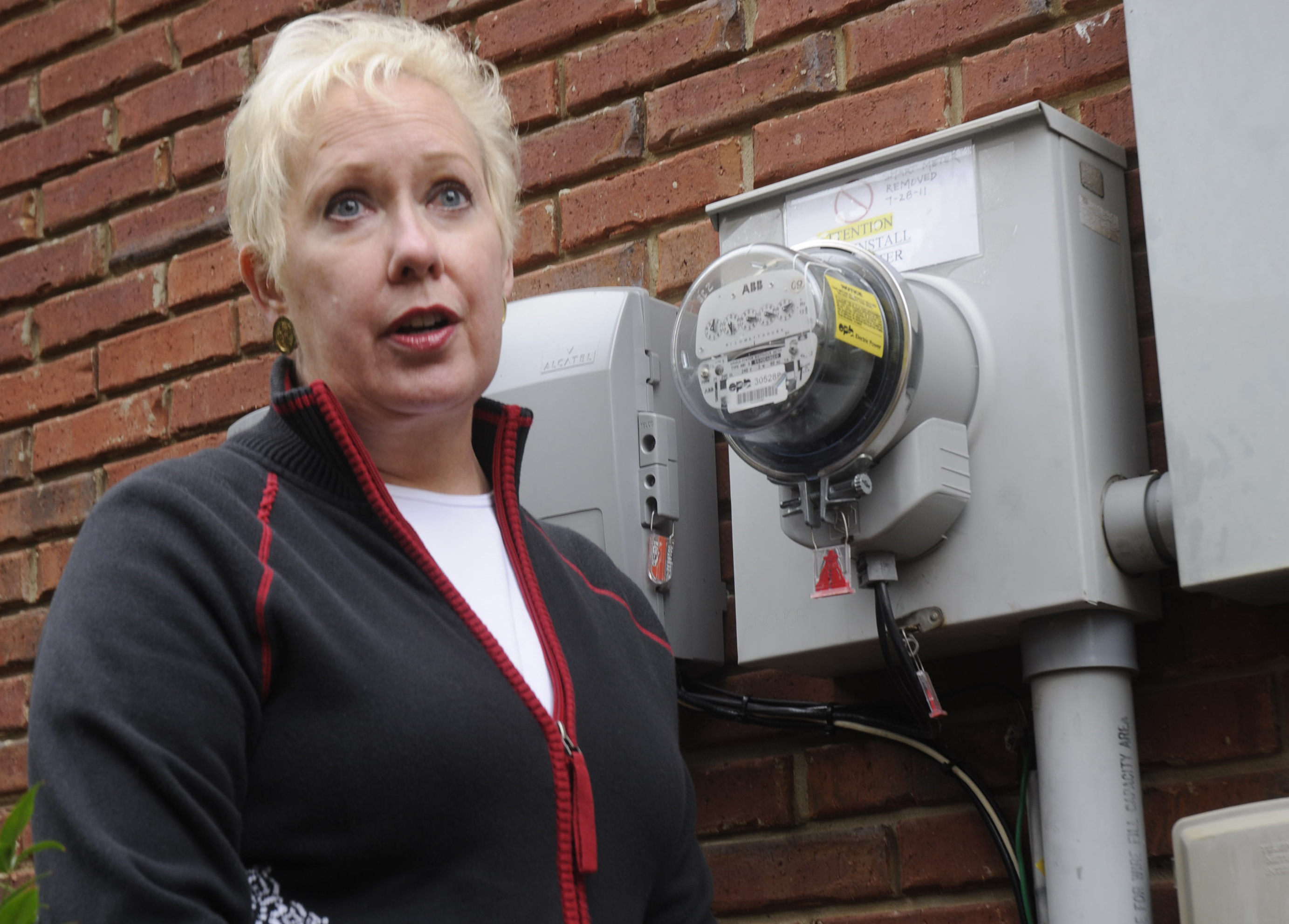Groups decry sharing of electricity consumption data
Monday, November 28, 2011
Chattanooga's new "smart" electric meters were designed to reduce the impact of outages and give consumers more control over their power bills, but some residents say the loss of privacy is a slippery slope and the new meters aren't worth the benefits.
Members of the Chattanooga Tea Party say information supplied to EPB by more than 90,000 installed meters amounts to government surveillance, as the real-time readouts on wattage spikes could be used to determine when a person gets home, takes a shower or is gone for an extended period.
"It is a huge government intrusion," said Hixson homeowner Karen Chastain.
She returned from a vacation to find that the utility had installed its new meter without her permission. However, she was able to get the old meter back after threatening legal action.
Chastain and dozens of other residents are affixing signs to their current meters warning utilities not to install the new digital meter.
"What bothers me the most is that a lot of people are allowing it, not questioning it," she said. "They say, 'Oh, it's a smart meter, it sounds really good.'"
Each digital meter comes equipped with a 4-watt cellular radio used to broadcast data back to the city-owned utility - data that eventually will be used for time-of-day pricing, spot problems before they turn into high energy bills, or to manage energy usage for customers who want the utility to do that, officials say.
"Regulation of consumers' use of energy is one of the factors involved. It's one of their aims," Chastain said.
But Harold DePriest, president of the Electric Power Board and strong proponent for the meters, told a tea party gathering that the fears are unfounded.
The company did acknowledge, though, that appliances could be turned off for customers who want help managing their energy usage and agree to participate.
What's a Smart Meter?
The technology doesn't currently give EPB enough information to determine anything significant about a homeowner's habits, even for a seasoned engineer such as himself, DePriest said.
"Surveillance is a long stretch," he said. "I can't tell if someone is asleep or awake, if they're cooking or watching the TV."
While utility officials can hazard a guess at what an energy spike means - a large increase in wattage on an August afternoon is probably the air conditioning kicking on - it's hard to know for sure, he said.
"In years to come we will have time-of-use rates" for customers who choose that pricing structure, DePriest said. "TVA charges us a premium for those usage spikes."
Remotely throttling back a homeowner's air conditioner or hot water heater isn't possible without additional wiring and an agreement from the resident, he added, because EPB owns only the meter, not the house.
Regardless, he promised that those changes won't happen in his three remaining years as head of EPB.
Costs and Benefits
Even without hourly pricing and smart appliances, there are benefits to keeping the meters in place, DePriest said.
Smart meters and the federal stimulus-funded Smart Grid combine to form a more robust, virtually storm-proof power grid that allows engineers to reduce outage times drastically during storms and to reroute power in the blink of an eye, DePriest said.
In addition, the new meters eliminate the need for human meter readers because they essentially read themselves and send the data back to EPB. That could save the utility about $3 million per year in operating costs, he added.
But civil libertarians aren't convinced, pointing to examples in other states and countries where the technology has been upgraded to provide more detailed information and give utilities more control over residents' power consumption.
"The technology is there for them to greatly expand and enhance it," added Mark West, head of the Chattanooga Tea Party. "How many times have we been assured by utilities, bureaucracies and elected officials that this is where we are starting and this is not going to go any further? But five, 10, 20 years later you wouldn't even recognize the system or program they started with."
Sharon Peker, who serves on the Chattanooga Tea Party's leadership committee, said, "It wouldn't take an electrical engineer" to see if someone is home because power consumption necessarily would go down when someone is absent.
But Richard Beeland, spokesman for Chattanooga Mayor Ron Littlefield, called opponents "conspiracy theorists."
"This is so fringe, it's a shame that we have to discuss the smart meter program in the city," he said. "I don't think there's anything that we can say to them that can make them believe what we're doing is a good thing."
Agenda 21
In fact, allowing appliances to communicate and follow commands isn't just a possibility, it's one of the goals for the technology, which is being rolled out worldwide.
Smart Grid opponents say the philosophy of monitored energy use evolved from the United Nations' "Agenda 21" agreement, which called in 1992 for controlling the rise in energy consumption through smart, sustainable technologies.
On Nov. 10, the U.S. Department of Energy announced that it would make $8 million available to "encourage utilities, local governments, and communities to create programs that empower consumers to better manage their electricity use through improved access to their own electricity consumption data," according to a news release posted on SmartGrid.gov.
But officials' plans could take longer than projected if resistance continues to build.
The Associated Press reported that a number of communities have placed moratoriums on the devices, including several counties and more than three dozen cities, and utilities like PG&E are allowing consumers to keep the old meters - for a monthly fee.
Symptoms and Causes
The meters are just a symptom of a larger problem with government regulators, DePriest told residents at a question-and-answer session.
"Our country has had an energy policy for years, and it's high-cost energy," he said.
TVA's average plant is 60 years old, and most were designed to last 40 years, he said.
"Last year TVA shut down six units, and they have to replace all their units in 20 years," DePriest said. "The savings for them is new generation that they don't have to install."
And new plants are taking longer and costing more to build, encouraging utilities simply to charge more for energy to discourage its use rather than build new plants.
"Our power companies are trapped," he said. "The cost of permitting a power plant of any time is huge, and it takes 20 to 30 years to get one online."
Though he acknowledged that smart appliances and time-of-day pricing are coming, DePriest doesn't think that "anybody at TVA has the cojones" to force it on consumers without their permission.
EPB plans to finish its installation of 170,000 meters in summer 2012.



